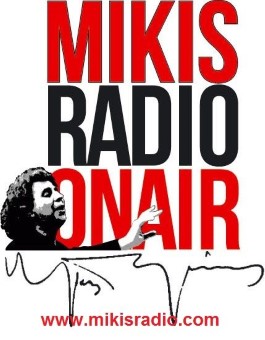Zorba the Ballet
1950
Reflections on the Zorba Ballet
I
The Zorba ballet is to a certain extent my representative work, for in it are united the three musical influences that have shaped me as a composer, namely the European, the Greek and the Cretan.
Paradoxically enough, I began my musical career as a so-called “West-European composer”. I Had heard the classical masterpieces during my youth, and they so inspired me that I decided to become a “composer” – the word in itself says a lot. At the Athens Conservatory, which functioned according to the western model, only the central-European tradition of music was taught.
Later on I “discovered” traditional Greek music. Of course I carried it within me, but I only become conscious of it in 1947, while I was living in exile on the islands of Ikaria. My comrades there sang mostly urban folk songs, which I attempted to combine with my symphonic aspirations in the “Greek Carnival” suite (1948/49), the material of which has been absorbed in its entirely into the Zorba balett. But this way – based on the creation of a kind of symphonic folk music – seemed to me at the time to be leading into a cul de sac, and I gave it up temporarily at the beginning of the fifties.
I came to understand the independent musical significance of Cretan music, which I had of course heard at home as a child, during a two-year stay on the island of Crete, the land of my forefathers.
I lived in my father’s home village and visited numerous festivities, baptisms and weddings, during which this characteristics music, which had perhaps the most enduring influence on me, could be heard all day. At this time I composed the “Sirtos Chaniotikos” for piano and orchestra, being, as the title indicates, an orchestration of the Sirtos dance of the city of Chania. I used most of the motifs of this work in the music for Cacojianni’s film of Zorba and same of them again for the ballet.
But it was not until the Zorba ballet (1988) that I attempted to unite these different influences, which is why I spoke earlier of my “most representative work.” I tried to grasp these creative elements not as a contradiction but rather as a unity, just as I bear them within myself; I am simultaneously a Cretan, a Greek and a European.
On the other hand this is also the reason why I torment myself as a composer. I am dominated by two such fundamentally different tendencies as symphonic music and the folk song. I wanted at the same time to combine the two: my admiration for European culture, with which, however, I could not entirely identify, and however, I could not entirely identify, and my roots in my homeland, which did not, however, possess a tradition of classical music.
In everything that I created, one of these tendencies nearly always had the upper hand between 1950 and 1960, I composed exclusively symphonic music, between 1960 and 1980 only folk music. It is only since 1980 that I have renewed my endeavours to combine the two, above all in my symphonies an finally systematically in the Zorba ballet.
It may perhaps appear highly contradictory to compose a symphony one day, a folk song the next and an oratorium the day after, but for me this is a necessity. It is as if I had a wall in front of me and were trying to open at least musical windows. For my problem as a Greek composer consist in the fact that I do not have any precedents. I have to create from nothingness. I therefore consider this work a search, an experiment, with the aim of reproducing this unity.
II
The central question posed by both the book and the film is: how do I resolve the conflict, with dance or with books? In my opinion, Kazantzakis’s reply is too absolute. For it would surely be an exaggeration, and would indeed be more akin to a caricature, to claim that a man who just dances and drinks can fathom the mystery of life. For today’s reader or spectator only one thing is of extreme importance, namely the fairy-tale that is being told. Every man’s desire to be a “dancer”, to find the way of truth with his own body, is taken seriously. But man needs everything: his dance, his books, his pleasure, his struggles. This synthesis is my ideal.
III
The film and the ballet have two things in common: three or four musical motifs and the characteristic personality of Zorba. I don’t know why, but almost everybody identifies himself with him, or rather would like to do so. He had a certain charm, has a lot to offer, while at the same time he is an objective observer. He is the person we are all searching for nowadays. If everybody were like that, we would have a different society. Zorba is very much the common man, personifying to a certain extent the people. He does not want to elevate himself above others and he loves everybody, the widow, Hortense, the American; up to a point he is not even interested in himself.
Such unpretentious people are hard to find nowadays. For he does not play the role of the saviour, not at all, but he can nonetheless convince, aiming instinctively for the essence of things. And when the widow is murdered, when Hortense dies, when the construction project fails, when therefore a complete tragedy is taken place, he has the strength to face up to life, to march on and take life as it is. This is perhaps the reason why people are so fascinated by this figure.
From an interview conducted by Asteris Kutulas on the 23rd of August 1989 in Budapest.




